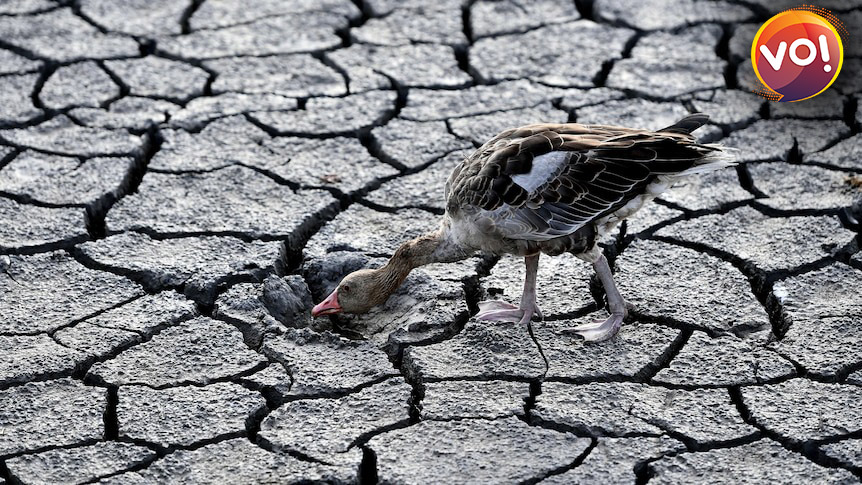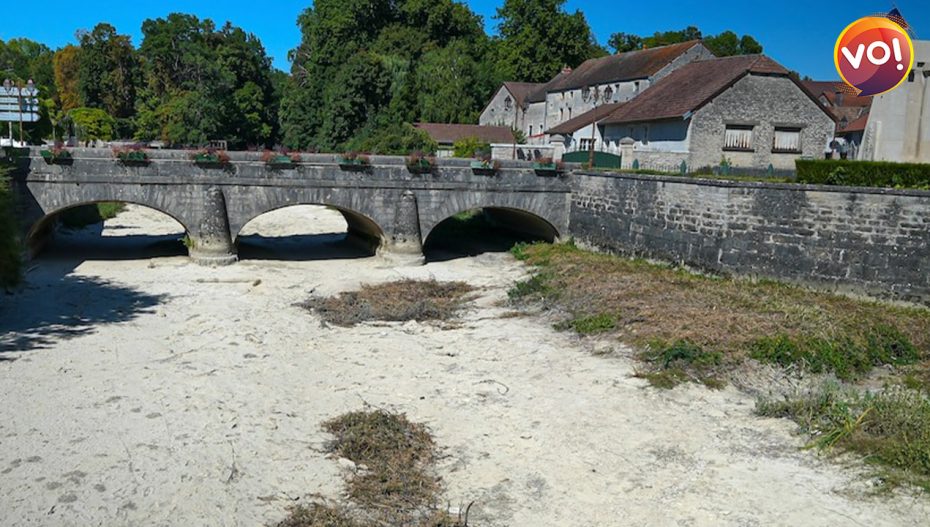Pic: White dust covers up the trench that was once River Tille in France
About 60% of the EU and the UK is affected by drought, according to the European Drought Observatory. Record-breaking heat waves linked to climate change have dried up rivers across the continent and sent water reserves plummeting to historic lows. This is the worst drought to have hit the otherwise Alpine climes in 500 years.
As a fallout, the European farm economies and water flow are threatened. The next fear is about wildfires ravaging the thickets and life being sucked out of aquatic species. Some countries have restricted water use and shipping goods has become difficult on major waterways like the Rhine and the Danube. There has been no significant rainfall for almost two months in Western, Central and Southern Europe.
The European Commission’s Joint Research Centre has warned drought conditions will worsen. Experts warn that the drought is due to long periods of dry weather caused by changes in world weather systems.

bed of Lake Velence in Hungary

rivers like France’s River Tille
The dry period has been predicted to continue in what experts said could be the worst drought in 500 years — leaving dry and cracked reservoirs in Spain and falling water levels on major arteries like the Danube, the Rhine and the Po.
Britain is bracing for another heatwave that will last longer than July’s record-breaking hot spell, with highs of up to 35C expected next week. The drought also has affected southern England, which received only 10 per cent of its average rainfall in July. The Rivers Trust Charity said England’s chalk streams — which allow underground springs to bubble up through the spongy layer of rock — were drying up, endangering aquatic wildlife like kingfishers and trout.
Climate change has exacerbated conditions as hotter temperatures speed up evaporation, and reduced snowfall in the winter limits supplies of fresh water available for irrigation in the summer. The drought has caused some European countries to impose restrictions on water usage, and shipping is endangered on the Rhine and the Danube.
The Rhine could reach critically low levels in the coming days, making the transport of goods — including coal and gasoline — increasingly difficult. On the Danube, authorities in Serbia have started dredging sand to deepen the waterway and keep vessels moving smoothly.

than July’s record-breaking hot spell, with highs of up to 35C expected next week
In neighbouring Hungary, wide parts of popular Lake Velence, near Budapest, have turned into patches of dried mud, beaching small boats. Water quality has deteriorated to the point that a ban on swimming was imposed at one beach on weekends. Stretches of the Po, Italy’s longest river, are so low that barges and boats that sank decades ago are resurfacing.
Also Read: Centre Of Excellence On Climate Change To Be Launched By Gujarat University













